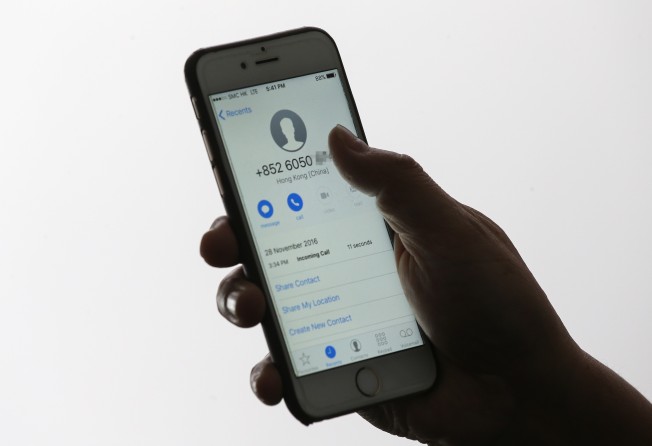Rampant cold calling by telemarketers in Hong Kong could become a criminal act
Officials say a do-not-call register might be the best method to shield people from telemarketers

Hong Kong authorities are considering criminal sanctions for the first time among several options in a public consultation exercise on tackling a long-running nuisance – rampant cold calling by telemarketers.
The options offered on Thursday by the Commerce and Economic Development Bureau included self-regulation by telemarketing firms, call-filter applications for smartphones, and a do-not-call register, considered the strongest of the measures.
Officials said telemarketers could be subject to either civil or criminal sanctions if they continued to call numbers listed on the register by people who did not want to be disturbed.
The government has long been reluctant to get tough on nuisance callers, but is now under renewed pressure to act after the recent case of a family in an emergency raised significant public concern.
A woman ignored 17 calls from hospital staff trying to get her consent for surgery on her husband after he was injured in a car accident – she had assumed they were nuisance calls from a telemarketer.
While Hong Kong has an established do-not-call register that protects listed numbers from commercial electronic messages, including voice recording, direct person-to-person calls are exempted. A survey commissioned by the government in 2015 found 96 per cent of respondents were bothered by such unsolicited calls.
“We understand they cause a lot of nuisance to people, that is why we want to gather people’s views in this consultation,” commerce minister Greg So Kam-leung said.
But he cautioned that the government would also have to consider the impact on the livelihoods of an estimated 7,000 telemarketing workers.
According to the experience of 17 overseas jurisdictions surveyed by the government, a do-not-call register appeared to work in reducing cold calls, although enforcement action was dwarfed by the number of complaints.
“From overseas experience, there are actually some difficulties in legislating to set up the registry,” So said. “These include technical difficulties. For example, many cold calls are made from outside Hong Kong. There are also techniques to display a false number of the caller.”
IT sector lawmaker Charles Mok said: “The government should make the final beneficiary of cold calls shoulder criminal responsibility, and also make telemarketers’ phone numbers start with a certain digit so that people know who is calling.”
Shiu Ka-fai, legislator for the wholesale and retail sector, said he was against the register option. “Because the rent for shops at street level is so high, a lot of small and medium enterprises rely on telemarketing to do business,” he pointed out.
Pro-establishment lawmaker Elizabeth Quat suggested the government itself should provide filter apps, and that it was important to enact legislation to offer the public the register option.
Financial services lawmaker Christopher Cheung Wah-fung disagreed.
“I am not in favour of regulations that effectively ban cold calls, because the impact will be too big,” he said. “Maybe the companies should give better training so that the cold-caller will not cause too much disturbance, and also agree not to call the person again for a period if he shows no interest in the product.”
The government will gather public views until July 31 before proposing the way forward.